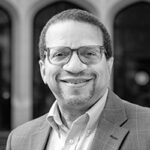
The idea of an “evangelist” precedes Christian usage. Armies who were successful in battle would dispatch evangelists to bring news of victory to the king long before Christian conceptions of evangelism.
Across the eras, Christians have dispatched “good news bearers” to declare victory over our enemies sin and death. Through Christ Jesus we have victory! This is, indeed, the best news that has ever been.
Problematic expressions of Christian evangelism due to cultural contamination in various contexts of power and privilege are clearly documented and well known. The fact that many have mishandled the word and what it should communicate, however, should not tempt us to throw out the baby with the bathwater. Many people have corrupted the word “love,” for example, but many others know how lovely and life-giving it is to hear someone assert “I love you” and to feel loved. Too often people have carried culture in the name of Christ, given people the Bible and taken their land with guns, elevated one’s flag above the cross, and more. Our challenge and call, however, is to rehabilitate good words that have been misused.
Karl Barth is credited with asserting that Augustine of Hippo contended that the church must always be reformed. Because sin is part of the human condition, we are too often prone to mishandling and misusing the marvelous things of God. The idea of evangelism is not exempt from our perpetual bumbling and bungling of beautiful concepts. We must be reminded, however, that regardless of how damaged the concept of evangelism may be for some, it is a wonderful manifestation of the saving gift of God when handled with carefulness and faithfulness. Although we are clay jars, we have a treasure from God (2 Cor 4:7). And the good news is a priceless treasure.
As we work to deconstruct damaged ideas and reconstruct—or reform—God-breathed insights, may we not be so overwhelmed by human deficits that we cannot see the abundance of the good news of Jesus Christ in word and deed. As Johnson Oatman, Jr. reminded us, “The world is hungry for the living bread.” 1

David Emmanuel Goatley, President
The idea of an “evangelist” precedes Christian usage. Armies who were successful in battle would dispatch evangelists to bring news of victory to the king long before Christian conceptions of evangelism.
Across the eras, Christians have dispatched “good news bearers” to declare victory over our enemies sin and death. Through Christ Jesus we have victory! This is, indeed, the best news that has ever been.
Problematic expressions of Christian evangelism due to cultural contamination in various contexts of power and privilege are clearly documented and well known. The fact that many have mishandled the word and what it should communicate, however, should not tempt us to throw out the baby with the bathwater. Many people have corrupted the word “love,” for example, but many others know how lovely and life-giving it is to hear someone assert “I love you” and to feel loved. Too often people have carried culture in the name of Christ, given people the Bible and taken their land with guns, elevated one’s flag above the cross, and more. Our challenge and call, however, is to rehabilitate good words that have been misused.
Karl Barth is credited with asserting that Augustine of Hippo contended that the church must always be reformed. Because sin is part of the human condition, we are too often prone to mishandling and misusing the marvelous things of God. The idea of evangelism is not exempt from our perpetual bumbling and bungling of beautiful concepts. We must be reminded, however, that regardless of how damaged the concept of evangelism may be for some, it is a wonderful manifestation of the saving gift of God when handled with carefulness and faithfulness. Although we are clay jars, we have a treasure from God (2 Cor 4:7). And the good news is a priceless treasure.
As we work to deconstruct damaged ideas and reconstruct—or reform—God-breathed insights, may we not be so overwhelmed by human deficits that we cannot see the abundance of the good news of Jesus Christ in word and deed. As Johnson Oatman, Jr. reminded us, “The world is hungry for the living bread.” 1
David Emmanuel Goatley, President
As he works with and advocates for people experiencing homelessness, Kevin Nye (MDiv ’16) calls the church into hopeful, mutually transformative community with unhoused people.